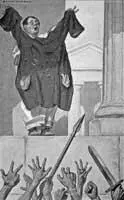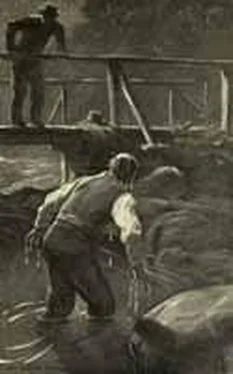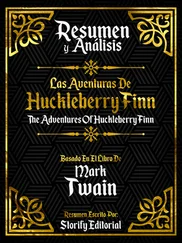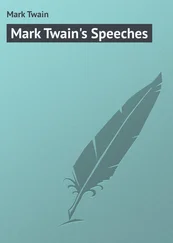Mark Twain - Editorial Wild Oats
Здесь есть возможность читать онлайн «Mark Twain - Editorial Wild Oats» весь текст электронной книги совершенно бесплатно (целиком полную версию без сокращений). В некоторых случаях можно слушать аудио, скачать через торрент в формате fb2 и присутствует краткое содержание. Жанр: Юмористическая проза, Классическая проза, на английском языке. Описание произведения, (предисловие) а так же отзывы посетителей доступны на портале библиотеки ЛибКат.
- Название:Editorial Wild Oats
- Автор:
- Жанр:
- Год:неизвестен
- ISBN:нет данных
- Рейтинг книги:4 / 5. Голосов: 1
-
Избранное:Добавить в избранное
- Отзывы:
-
Ваша оценка:
- 80
- 1
- 2
- 3
- 4
- 5
Editorial Wild Oats: краткое содержание, описание и аннотация
Предлагаем к чтению аннотацию, описание, краткое содержание или предисловие (зависит от того, что написал сам автор книги «Editorial Wild Oats»). Если вы не нашли необходимую информацию о книге — напишите в комментариях, мы постараемся отыскать её.
Editorial Wild Oats — читать онлайн бесплатно полную книгу (весь текст) целиком
Ниже представлен текст книги, разбитый по страницам. Система сохранения места последней прочитанной страницы, позволяет с удобством читать онлайн бесплатно книгу «Editorial Wild Oats», без необходимости каждый раз заново искать на чём Вы остановились. Поставьте закладку, и сможете в любой момент перейти на страницу, на которой закончили чтение.
Интервал:
Закладка:
He said: "You'll like this place when you get used to it."
I said: "I'll have to get you to excuse me; I think maybe I might write to suit you after a while; as soon as I had had some practice and learned the language I am confident I could. But, to speak the plain truth, that sort of energy of expression has its inconveniences, and a man is liable to interruption. You see that yourself. Vigorous writing is calculated to elevate the public, no doubt, but then I do not like to attract so much attention as it calls forth. I can't write with comfort when I am interrupted so much as I have been to-day. I like this berth well enough, but I don't like to be left here to wait on the customers. The experiences are novel, I grant you, and entertaining, too, after a fashion, but they are not judiciously distributed. A gentleman shoots at you through the window and cripples me ; a bomb-shell comes down the stove-pipe for your gratification and sends the stove-door down my throat; a friend drops in to swap compliments with you, and freckles me with bullet-holes till my skin won't hold my principles; you go to dinner, and Jones comes with his cowhide, Gillespie throws me out of the window, Thompson tears all my clothes off, and an entire stranger takes my scalp with the easy freedom of an old acquaintance; and in less than five minutes all the blackguards in the country arrive in their war-paint, and proceed to scare the rest of me to death with their tomahawks. Take it altogether, I never had such a spirited time in all my life as I have had to-day. No; I like you, and I like your calm, unruffled way of explaining things to the customers, but you see I am not used to it. The Southern heart is too impulsive; Southern hospitality is too lavish with the stranger. The paragraphs which I have written to-day, and into whose cold sentences your masterly hand has infused the fervent spirit of Tennessean journalism, will wake up another nest of hornets. All that mob of editors will come—and they will come hungry, too, and want somebody for breakfast. I shall have to bid you adieu. I decline to be present at these festivities. I came South for my health; I will go back on the same errand, and suddenly. Tennessean journalism is too stirring for me."
After which we parted with mutual regret, and I took apartments at the hospital.
Nicodemus Dodge—Printer
When I was a boy in a printing-office in Missouri, a loose-jointed, long-legged, tow-headed, jeans-clad, countrified cub of about sixteen lounged in one day, and without removing his hands from the depths of his trousers pockets or taking off his faded ruin of a slouch hat, whose broken rim hung limp and ragged about his eyes and ears like a bug-eaten cabbage-leaf, stared indifferently around, then leaned his hip against the editors' table, crossed his mighty brogans, aimed at a distant fly from a crevice in his upper teeth, laid him low, and said, with composure:
"Whar's the boss?"
"I am the boss," said the editor, following this curious bit of architecture wonderingly along up to its clock-face with his eye.
"Don't want anybody fur to learn the business, 'tain't likely?"
"Well, I don't know. Would you like to learn it?"
"Pap's so po' he cain't run me no mo', so I want to git a show somers if I kin, 'tain't no diffunce what—I'm strong and hearty, and I don't turn my back on no kind of work, hard nur soft."
"Do you think you would like to learn the printing business?"
"Well, I don't re'ly k'yer a durn what I do learn, so's I git a chance fur to make my way. I'd jist as soon learn print'n' 's anything."
"Can you read?"
"Yes—middlin'."
"Write?"
"Well, I've seed people could lay over me thar."
"Cipher?"
"Not good enough to keep store, I don't reckon, but up as fur as twelve-times-twelve I ain't no slouch. 'Tother side of that is what gits me."
"Where is your home?"
"I'm f'm old Shelby."
"What's your father's religious denomination?"
"Him? Oh, he's a blacksmith."
"No, no—I don't mean his trade. What's his religious denomination?"
" Oh —I didn't understand you befo'. He's a Freemason."
"No, no; you don't get my meaning yet. What I mean is, does he belong to any church ?"
" Now you're talkin'! Gouldn't[sic] make out what you was a-tryin' to git through yo' head no way. B'long to a church ! Why, boss, he's be'n the pizenest kind of a Free-will Babtis' for forty year. They ain't no pizener ones 'n' what he is. Mighty good man, pap is. Everybody says that. If they said any diffrunt they wouldn't say it whar I wuz—not much they wouldn't."
"What is your own religion?"
"Well, boss, you've kind o' got me thar—and yit you hain't got me so mighty much, nuther. I think 't if a feller he'ps another feller when he's in trouble, and don't cuss, and don't do no mean things, nur noth'n' he ain' no business to do, and don't spell the Saviour's name with a little g, he ain't runnin' no resks—he's about as saift as if he b'longed to a church."
"But suppose he did spell it with a little g—what then?"
"Well, if he done it a-purpose, I reckon he wouldn't stand no chance,—he oughtn't to have no chance, anyway, I'm most rotten certain 'bout that."
"What is your name?"
"Nicodemus Dodge."
"I think maybe you'll do, Nicodemus. We'll give you a trial, anyway."
"All right."
"When would you like to begin?"
"Now."
So, within ten minutes after we had first glimpsed this nondescript he was one of us, and with his coat off and hard at it.
Beyond that end of our establishment which was farthest from the street was a deserted garden, pathless, and thickly grown with the bloomy and villanous "jimpson" weed and its common friend the stately sunflower. In the midst of this mournful spot was a decayed and aged little "frame" house with but one room, one window, and no ceiling—it had been a smoke-house a generation before. Nicodemus was given this lonely and ghostly den as a bedchamber.
The village smarties recognized a treasure in Nicodemus right away—a butt to play jokes on. It was easy to see that he was inconceivably green and confiding. George Jones had the glory of perpetrating the first joke on him; he gave him a cigar with a fire-cracker in it and winked to the crowd to come; the thing exploded presently and swept away the bulk of Nicodemus's eyebrows and eyelashes. He simply said:
"I consider them kind of seeg'yars dangersome"—and seemed to suspect nothing. The next evening Nicodemus waylaid George and poured a bucket of ice-water over him.
One day, while Nicodemus was in swimming, Tom McElroy "tied" his clothes. Nicodemus made a bonfire of Tom's by way of retaliation.
A third joke was played upon Nicodemus a day or two later—he walked up the middle aisle of the village church, Sunday night, with a staring hand-bill pinned between his shoulders. The joker spent the remainder of the night, after church, in the cellar of a deserted house, and Nicodemus sat on the cellar door till towards breakfast-time to make sure that the prisoner remembered that if any noise was made some rough treatment would be the consequence. The cellar had two feet of stagnant water in it, and was bottomed with six inches of soft mud.

"WHEEZING THE MUSIC OF 'CAMPTOWN RACES'"
But I wander from the point. It was the subject of skeletons that brought this boy back to my recollection. Before a very long time had elapsed, the village smarties began to feel an uncomfortable consciousness of not having made a very shining success out of their attempts on the simpleton from "old Shelby." Experimenters grew scarce and chary. Now the young doctor came to the rescue. There was delight and applause when he proposed to scare Nicodemus to death, and explained how he was going to do it. He had a noble new skeleton—the skeleton of the late and only local celebrity, Jimmy Finn, the village drunkard—a grisly piece of property which he had bought of Jimmy Finn himself, at auction, for fifty dollars, under great competition, when Jimmy lay very sick in the tanyard a fortnight before his death. The fifty dollars had gone promptly for whiskey and had considerably hurried up the change of ownership in the skeleton. The doctor would put Jimmy Finn's skeleton in Nicodemus's bed!
Читать дальшеИнтервал:
Закладка:
Похожие книги на «Editorial Wild Oats»
Представляем Вашему вниманию похожие книги на «Editorial Wild Oats» списком для выбора. Мы отобрали схожую по названию и смыслу литературу в надежде предоставить читателям больше вариантов отыскать новые, интересные, ещё непрочитанные произведения.
Обсуждение, отзывы о книге «Editorial Wild Oats» и просто собственные мнения читателей. Оставьте ваши комментарии, напишите, что Вы думаете о произведении, его смысле или главных героях. Укажите что конкретно понравилось, а что нет, и почему Вы так считаете.












